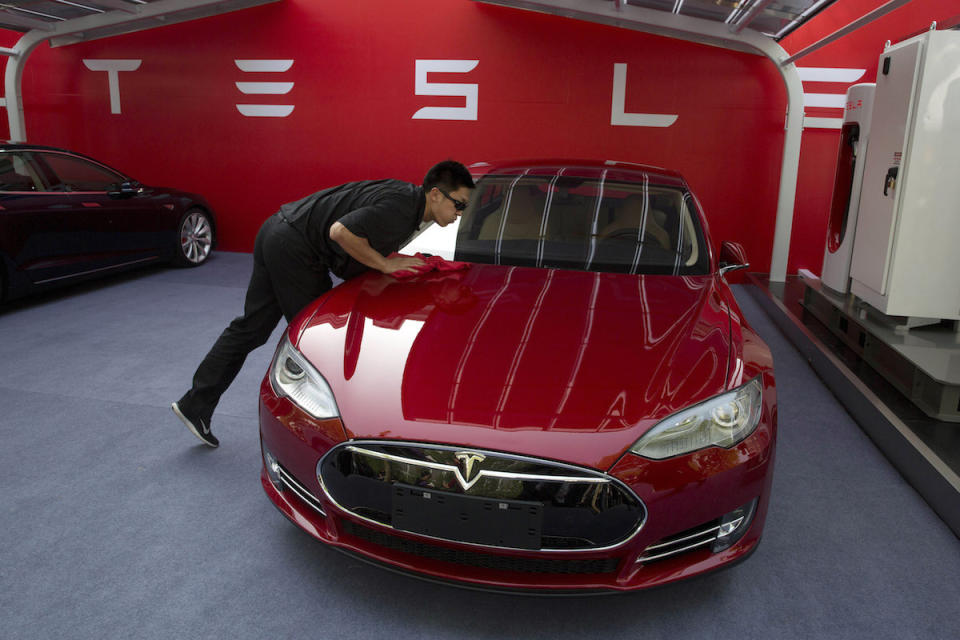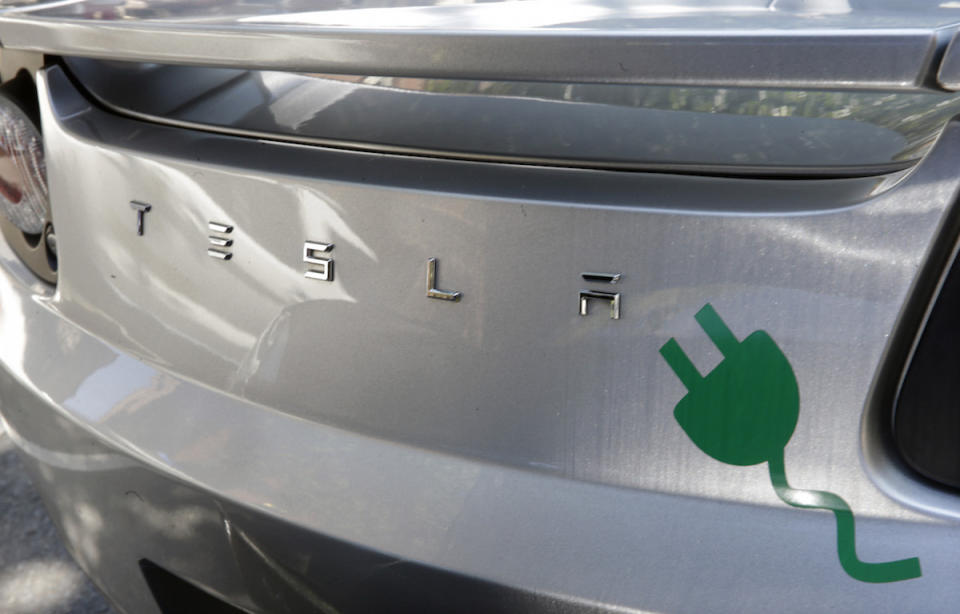How Tesla Keeps A Monopoly On Fixing Its Cars

For years now Tesla Motors has been fighting an extensive legal battle for the right to sell their cars throughout the United States. It’s a struggle that pits the young David of auto manufacturing upstarts against a Goliath of politically savvy new-car dealers and automakers.
But Tesla is now pursuing its own barriers to other players when it comes to who can service or repair a Tesla.
As Bozi Tatarevic wrote on Thursday at The Truth About Cars, Tesla is neither required by law nor bound by auto-industry agreements to share repair data with independent mechanics, since it doesn’t rely on franchised dealerships.
Repair shop, service center, you—doesn’t matter. Even if you own your car outright, Tesla will not give you the tools or data to fix your car, and there’s nothing you can do about it.
This may not be a big deal now, since Tesla’s share of the entire 230-million plus American car market is less than a twentieth of 1 percent, and the company has been generous with free repairs or upgrades. But as Tesla continues to pursue its ambitious goal of selling 500,000 cars by 2020, and its older cars accumulate more miles, the economics of eliminating competition on the repair side of the ledger could make the company incredibly wealthy—and the owners of those vehicles will pay for that lack of competition.
How wealthy? Right now Tesla charges the following service costs for their vehicles:
$600 — Annual Inspection (Every Year or 12,500 miles)
$1,900 — Four Years Of Prepaid Service (One Inspection Every Year or 50,000 miles)
$3,800 - Eight Years Of Prepaid Service (One Inspection Every Year or 100,000 miles)

If all of Tesla’s current customers opted just for the four-year program, Tesla would get nearly a billion dollars in extra revenue before they engage in any type of repair.
About that prepaid service: It only covers simple wear and tear items, such as windshield wipers, wheel alignments, tire rotations and software upgrades. If you end up with a major suspension issue, such as a bad axle or a bent wheel, you are on the hook to Tesla once that four-year/50,000-mile warranty runs out.
Tesla does not have the resources to do everything itself so far; it has been adding service employees and begun certifying independent body shops to handle structural repairs on its aluminum-bodied vehicles, much like Audi and Jaguar do. To get that certification requires a shop to spend about $40,000 in tools and invest in proprietary Tesla training.
And those repairs can be expensive, with one body-shop owner saying a fender replacement on a Model S can run more than three times the cost for an average domestic vehicle — some $18,000.
The cost of maintaining and repairing vehicles is already high enough these days, with labor time ranging between $65 and $120 an hour and parts still carrying a substantial price premium. Once you pay for that sexy and desirable vehicle, Tesla will have the means to use its legal leverage to charge owners far more for long-term service than would be the case if the company truly embraced an open marketplace. If Tesla wants to operate in a free market, they should give everyone the opportunity to do so.

 Yahoo Autos
Yahoo Autos 